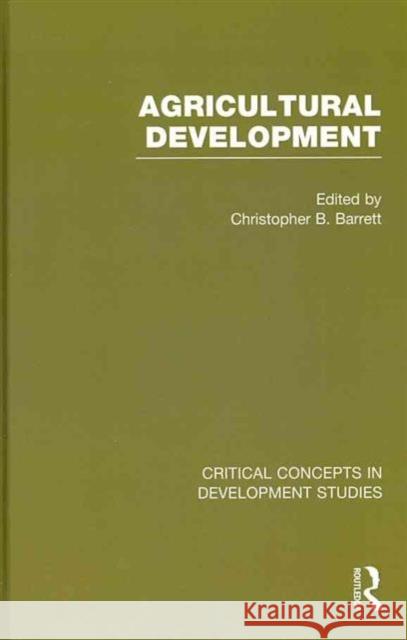Agricultural Development » książka
Agricultural Development
ISBN-13: 9780415581875 / Angielski / Twarda / 2011 / 1760 str.
Virtually all national cases of rapid, widespread progress from poverty to wealth have been causally associated with the transformation of agricultural systems. From eighteenth- and nineteenth-century Europe and North America to late twentieth-century East Asia, striking increases in agricultural productivity, improvements in food safety, and the markedly reduced costs of food distribution have dramatically bettered the quantity, quality, and variety of food available at lower prices. Around the globe, these agricultural advances have permitted unprecedented growth in incomes, life expectancy, and other quality-of-life indicators, and have decreased the risk of chronic or acute malnutrition. Furthermore, increased investment in education and non-agricultural activities in developed economies has also been enabled. Understanding the process of agricultural development is therefore central to most contemporary research and advanced study in development studies, agricultural economics, and cognate areas. To enable users to make sense of the subject's vast literature and the continuing explosion in research output, Routledge is pleased to announce this new four-volume collection from our 'Critical Concepts in Development Studies' series. Edited by a leading scholar in the field, Agricultural Development brings together, in one easy-to-use resource, the foundational and the very best cutting-edge scholarship in agricultural development. It provides a thorough review of the evolution of agricultural development, integrating theoretical and empirical research. With a full index, chronological table of contents, and also supplemented by an extensive introductory essay, newly written by the collection's editor, which summarizes the state of the subdiscipline and outlines its history, Agricultural Development is an essential reference work for academic researchers, policy practitioners, and students alike.











